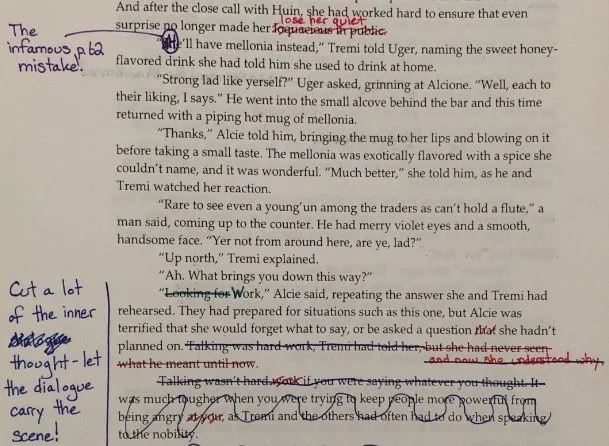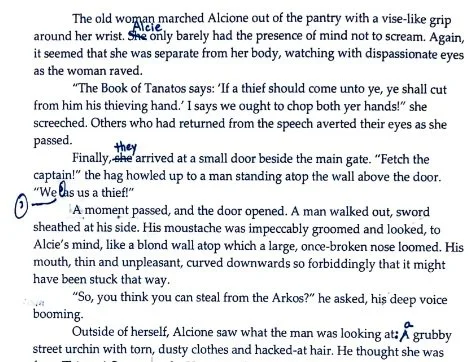
Edit Options
What kind of edit do you need?
Beta Read
For this stage, you will need a completed manuscript. If you have finished your story but are only beginning to edit it and have questions, or need someone to read it through and tell you where to begin revising, a beta read is for you. Like beta testers for games, a beta reader is asked to provide specific feedback on a work to help guide the writer toward improving their product.
Unlike an alpha reader, who follows along as you write, a beta reader is expected to read the entire story through and point out inconsistensies, plot holes, or places where the narrative isn’t interesting or feels “off” somehow. Beta readers can also check your story for issues with cultural inaccuracy, bias, or problematic language, if those should present reason for concern.
In my role as your beta reader, I would focus on larger issues within the work at hand. For fiction, we would go over plot, pacing, and characterization with an eye toward a consistent and cohesive narrative. In longer works, special attention would be paid towards the introductory and ending chapters, as well as sections such as the midpoint and “dark moment,” pivotal areas in a three-act structure to help anchor your plot along lines that will be familiar to readers.
For nonfiction, we would study the case you wish to lay out, references you plan to use as evidence, and the structure of the narrative. For both, I will offer a list of suggested revisions, and a chapter-by-chapter guide to indicate how best to insert those revisions to strengthen your work. In this stage, I would not check for spelling or grammatical issues, or sentence structure, as the main text of your work might undergo significant changes prior to publication.
Developmental/Content Edit
The content, or developmental edit, is a much more involved version of the beta read. For fiction, this edit will study your plot, characters, and pace, but also consider world-building, themes, and considerations beyond the text of the book itself, such as a blurb, tagline, potential sequel hooks, and more. For nonfiction, the edit would follow similar lines but focus more on your topic of study and how to make it engaging and easily understood by readers. Both types would also address your publication plan, whether traditional or independent, and how best to pursue it.
In addition to the revision summary and chapter-by-chapter analysis, you would receive a guide to your characters (or topic), a guide focused on plot, pacing, and theme, and two virtual conferences during which we would address troubleshooting issues for a proposed rewrite. If you wish to do a content edit, there is no need to do a beta read.
Copy Edit
After you have completed a content edit and successfully revised your draft, you will be ready for a copy edit. In this stage, we will look at your sentence structure. I study many aspects of your text as I go through it line by line.
Are your sentences clunky or passive? Does your phrasing obscure or muddle what you’re trying to say? Does your dialogue come across as trite or too didactic? Is it effective in conveying your characters’ personalities? If you’re writing in first person, does your narration stay consistent with each character whose point-of-view you use?
Is your story readable without difficulty? Is the language consistent with the grade level or age of reader you intend for your audience? Does the tone carry the themes and narrrative correctly, or is there dissonance? These and many other questions are among what I take into consideration as I make suggestions during a copy edit.
Proofread
The proofread is the final stage I recommend before taking your manuscript to an agent or publishing it yourself. While I often catch typos as a matter of habit during other types of edit, if you have since revised your work, the new sentences often contain errors that weren’t there in earlier drafts. You may think you’ve caught all the problems with spelling, grammar, and punctuation the last time around. But I urge you to reconsider. Even the most talented writers and editors can benefit from a fresh pair of eyes taking one final look at your manuscript before it is sent off into the world.

